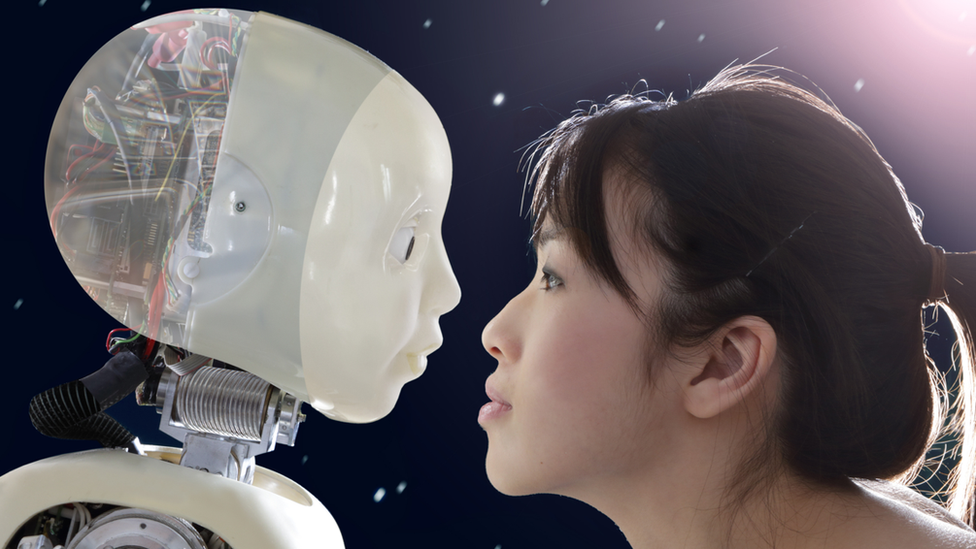AI investigated in UK over fears of domination
- Published
- comments

The UK is set to review the artificial intelligence (AI) market to make sure its benefits are available for everyone and that no single firm will dominate.
The investigation by the competition watchdog will look at the software behind chatbots like ChatGPT.
The industry is facing scrutiny over the pace at which it is developing technology to mimic human behaviour.
AI's rapid take-up has sparked fears of job losses, privacy and the potential to circulate misleading information.
Sarah Cardell, chief executive of the Competition and Markets Authority, external (CMA), said so-called foundation models such as the software behind ChatGPT had the potential to "transform the way businesses compete as well as drive substantial economic growth".
But she said it was crucial that the potential benefits were "readily accessible to UK businesses and consumers while people remain protected from issues like false or misleading information".
The move comes days after Geoffrey Hinton - a man widely seen as the godfather of artificial intelligence - quit his job, warning about the growing dangers from developments in the field, which enables technology to create images or text that are barely distinguishable from the work of humans.
Sir Martin Sorrell, founder of the advertising companies WPP and S4, told the BBC that AI would be an "industrial revolution" and "another major shift in technology , rivalling, maybe even more significant than the iPhone and similar developments".
The digital advertising industry is already seeing the impact, he added, with firms using AI to "hyper personalise" ads for consumers.
"Obviously that raises all sorts of issues around regulation as well," Sir Martin told the Today programme.
He added that currently two companies dominate the AI space - Microsoft, which owns ChatGPT, and Google which has launched a rival chatbot called Bard.
Sir Martin said the CMA had shown its willingness to stop tech firms having too much power, for example by blocking Microsoft's planned takeover of UK gaming giant Activision Blizzard last week which sparked a furious reaction from the tech giant.
The US competition watchdog, the Federal Trade Commission, has also called for tougher regulation of AI.
"The [UK's] regulator is saying bigger is bad," Sir Martin said. "But the cost of developing [AI] technologies is so huge and thereby hangs the dilemma... If you restrict it you will restrict progress."
Watch: AI 'godfather' Geoffrey Hinton tell the BBC of AI dangers as he quits Google
'Quite scary'
Some have warned that tools such as Bard and ChatGPT - which can write essays, do computer coding and even have conversations in a human-like way - could end up displacing hundreds of millions of jobs.
Mr Hinton told the BBC that some of the dangers of AI chatbots were "quite scary", and that they could soon overtake the level of information that a human brain holds.
"Right now, they're not more intelligent than us, as far as I can tell. But I think they soon may be."
In March, key figures in artificial intelligence called for powerful AI systems to halted for at least six months amid concerns about the threats they posed.
Twitter chief Elon Musk and Apple co-founder Steve Wozniak were among those to sign an open letter warning of the risks, and say the race to develop AI systems is out of control.
The CMA said the development of AI had raised several other issues, including safety; security; privacy; intellectual property and copyright; and human rights.
The watchdog said it would specifically be looking at the impact on competition, with a view to creating a set of "guiding principles" to protect consumers as AI develops.
The heads of Google, Microsoft, OpenAI and Anthropic are due to meet US Vice President Kamala Harris to discuss issues surrounding AI on Thursday.
Reuters reported that the invitation to the companies included President Joe Biden's "expectation that companies like yours must make sure their products are safe before making them available to the public".
- Published2 May 2023
- Published16 March 2023